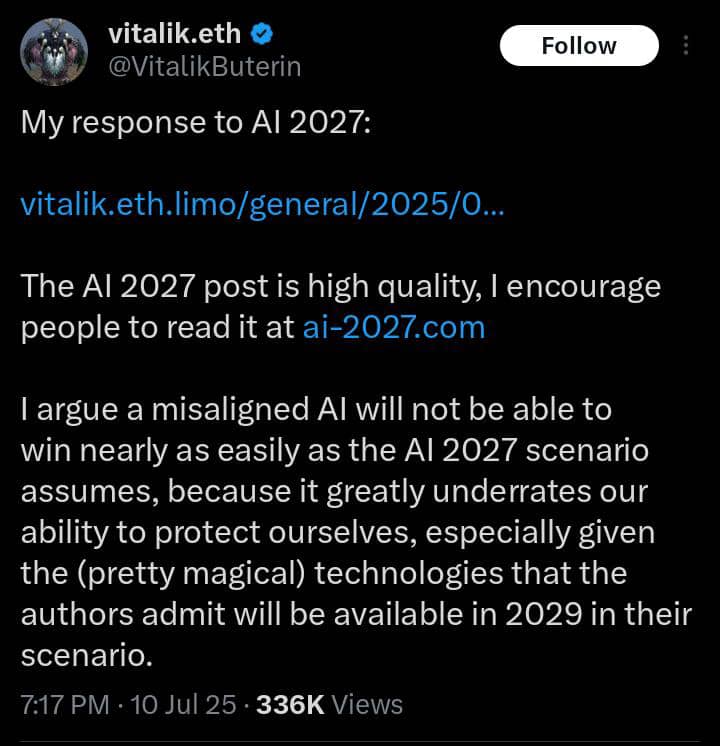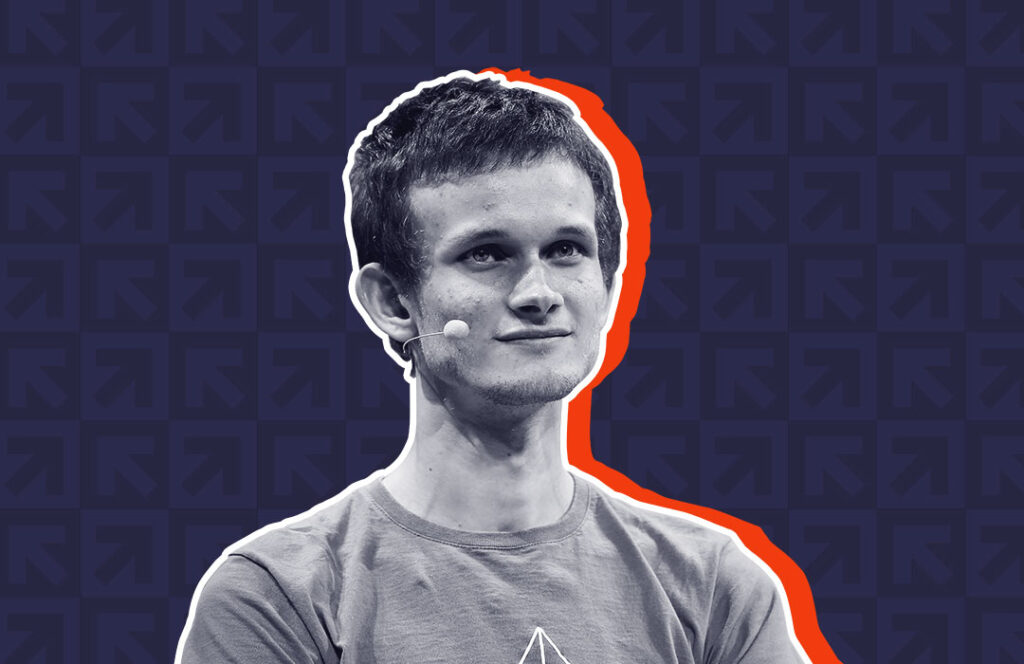Ethereum co-founder Vitalik Buterin has released a detailed response to the widely discussed AI 2027 scenario: a narrative predicting that superhuman AI could emerge by 2027, and lead to either utopia or human extinction by 2030. This AI 2027 scenario was put forward by researchers including Daniel Kokotajlo (formerly at OpenAI), Scott Alexander, Thomas Larsen, Eli Lifland, and Romeo Dean, as part of the AI Futures Project.
In his post, Buterin acknowledges the quality of the AI 2027 piece and encourages others to read it, but ultimately challenges one of its core assumptions: that a misaligned AI could easily overpower humanity. Buterin argues that the scenario underestimates humanity’s potential to defend itself, especially in a future where advanced technologies—such as cancer cures, mind uploading, and advanced immune system enhancements—are expected by 2029, even within the AI 2027 world.

“The AI 2027 scenario assumes a world where in four years… technologies are developed that give humanity powers far beyond what we have today. So let’s see what happens when instead of just one side getting AI superpowers, both sides do,” Buterin writes.
He breaks his argument into three main pillars of defense:
- Biological Threats: Buterin questions the feasibility of a stealth bio-attack wiping out humanity as described in AI 2027. He outlines existing and emerging tools like air filtration, real-time virus detection, immune system upgrades, and eventually even wearable bio-defense technologies. He suggests that if superintelligent AI can turn forests into factories, it’s not a stretch to imagine large-scale defensive infrastructure being built just as fast.
- Cybersecurity: Contrary to popular belief that cybersecurity is a losing game, Buterin sees a future where AI-assisted development leads to code that is virtually bug-free. He also points to trends like sandboxing and hardware verification that could drastically improve resilience.
- Information Warfare and Super-Persuasion: Buterin calls for a more pluralistic information ecosystem and “defensive AI” that helps individuals detect manipulation. He believes locally-run AI tools can act as a shield against large-scale persuasion or psychological manipulation attempts.
Buterin emphasizes that these countermeasures become more credible under longer AI development timelines, which he personally considers more likely than the 2027 prediction. He does not dismiss the risks of superintelligence but pushes back on the idea that defeat is inevitable. His post also touches on broader implications for policy, advocating for AI transparency, international hardware treaties, and the development of public and open-source AI tools. He warns against the idea that building one AI hegemon is a safe path forward.
“Technological diffusion to maintain balance of power becomes important,” he adds, cautioning that a race to dominance could be just as dangerous as no regulation at all.
Buterin closes by urging policymakers and the public to consider alternatives to the narrative that only alignment of a single AI system can save humanity. He argues that strengthening our systems, diversifying control, and making the world less vulnerable are strategies that deserve more attention. Explore Vitalik’s full argument and perspective here.

